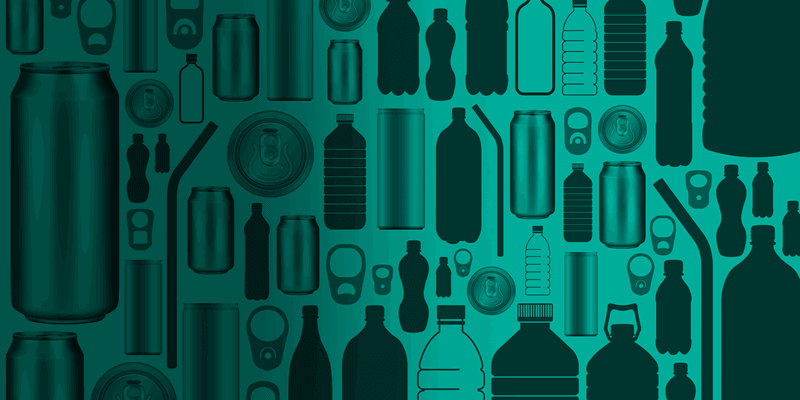As awareness of the impact of the consumption and manufacture of plastic on the environment increases, the reputation of recycled aluminum as a sustainable alternative grows. If in the technology sector Apple began producing its iPad made of recycled aluminum, now, it is the turn of the water industry.
The new boom.
Canned water is the latest cry of fashion in environmental matters or, at least, that is the advertising mantra of the new brands that are replacing plastic bottles with cans of recycled aluminum.
One of them is Mananalu, the company of Jason Momoa, the actor who plays Aquaman, which aims to save the planet thanks to society's recycling commitment.
Basically plastic floods our lives and it is difficult to take advantage of once recycled. To date, only 9% of the plastics generated have been reused, according to a study prepared in 2017 by the scientific journal Science Advances. On the opposite side, the aluminum cans we consume today are made up of 68% recycled material, while the water bottles only contain 3%.
Logistics and disadvantages.
At the user experience level, big industry names like Pepsi or Coke also show the critical side of this idea. For example, cans present a problem at the container level and they cannot be closed, and include a mechanism that allows it to make its price even more expensive, which is already higher than that of a plastic bottle. In addition, manufacturing a recycled aluminum can is between 25% and 30% more expensive than continuing with the current bottling.
Carbon footprint.>
Although Apple has been the forerunner when using recycled aluminum in the manufacture of devices such as the iPad, the truth is that the great but of this material are CO2 emissions and its contribution to greenhouse gases. To get an idea, at its most polluting level, a can of 330 ml releases 1,300 grams of carbon dioxide into the atmosphere, compared to 330 grams emitted by a plastic bottle of the same size.
However, the impact on carbon dioxide does not end there, but in the recycling process. According to data from the International Aluminum Institute and taking into account a 50% recycling rate by the consumer, re-melting a kilo of aluminum cans releases 8.94 kilograms of CO2 into the atmosphere. And, although the impact is much less than re-producing it from scratch, it still does not give us a zero balance in emissions.
Not everything when replacing the plastic goes through the aluminum. A group of researchers from the University of Colorado has discovered a polymer with characteristics very similar to those of plastic (light weight, durability and heat resistance), but whose distinguishing feature is that it can be recycled to infinity without damaging the ecosystem. That is, it would guarantee production and circular consumption.
Although they are still studying the feasibility to see how and when it can be carried out, the scientists claim to have found with the key that allows to group the molecules in environmentally normal and realistic conditions from the industrial point of view.

